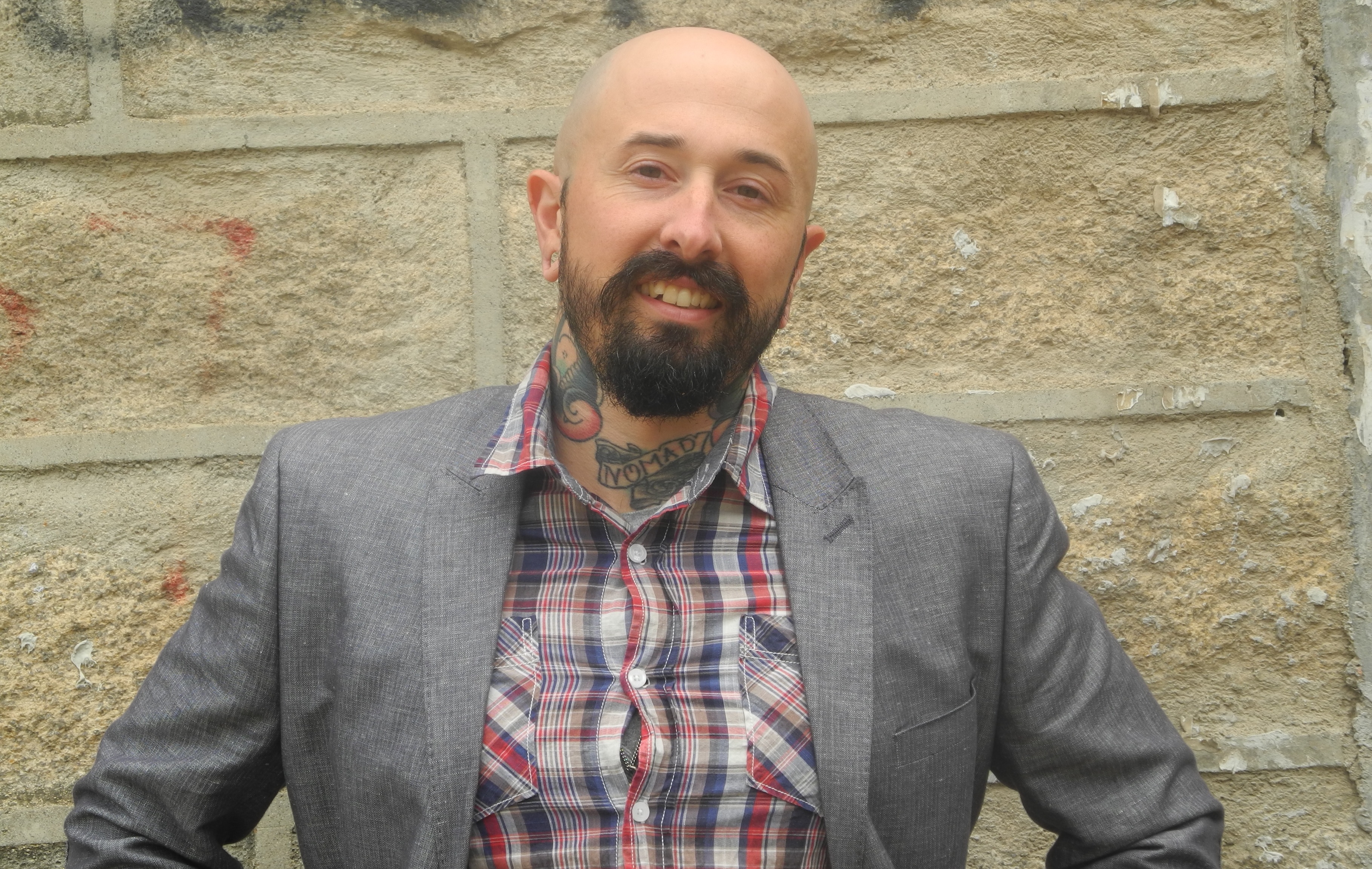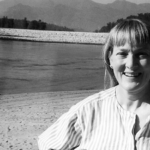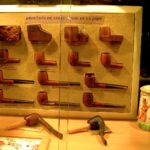Wade Shepard is a traveling writer who has been moving through the world for the past 16 years, going to over 55 countries. He is the author of Ghost Cities of China: The Story of Cities without People in the World’s Most Populated Country, and his articles have appeared in the South China Morning Post, Reuters, and CityMetric, among many other publications.
How did you get started traveling?
I began traveling almost as soon as I could. I went for a spin around the USA in an old beat up van with some friends right after I turned 18, and it really fulfilled all of my expectations of what travel would be like — it was in every way the typical teenage road trip. There was something about that experience that really lit up the circuits in my brain, there was just this feeling that I knew I had to have again and keep having. I found what I was looking for.
But I also found myself in the rather typical situation of wanting to travel but not having any money. Not only that, but I had no professional skills or even a work history. I also knew nothing of what perpetual travel would really be like or how to make money on the road. This was in 1999, so it was right before the time when you could find out how to do about anything you can dream of just by doing a quick search on the Internet. I really needed something that would get me started traveling. So I did what inexperienced, unskilled, under-funded people do all over the world: I went to college.
I realized that enrolling in a university far from where I grew up would at least get me far from where I grew up — which was the immediate goal. So I looked at a map. I found my position in Upstate New York and traced out a few of the longest trajectories across the USA. There happened to have found a school in the south of Florida who would accept just about anybody and didn’t have an application submission deadline, which was important as I was kicked out of high school and it was already the middle of June. I applied, they took me, and two months later I was there. At this time I was just looking for a way out of my little farming town, and I wasn’t aware that I would follow the strategy that I just employed in some form until my mid-twenties. Whenever it was looking like I was about to run out of money when traveling I would enroll for another semester of college somewhere. I would live off of financial aid and scholarships that I would obtain through various means.
In 2000 I enrolled in an archaeology field school in Ecuador, and it gave me my first taste of life outside of the USA, as well as the raw materials for a profession. When I returned to home later that year I had a goal of getting employed as an archaeology field tech. Lacking a university degree I was still very under-qualified, but I didn’t really let this bother me. I looked up the address of an archaeology firm in Buffalo and kept knocking on their door. The first couple of times I showed up they kind of patronized me as an expedient way of getting rid of me — but I really didn’t understand this at 20. I took them seriously when they said, “Wow, your CV looks really good, we’ll give you a call.” I kept going back to remind them, and the lady who ran the company found my resolve amusing and gave me a shot. I worked for a couple months in Buffalo and then jumped on a project in Indiana with another company. After that I had enough experience to start traveling from project to project around the country. This would be my main source of funding for the next eight years, as well as the first way I found to travel and make money too.
Some years past as I continued mixing bouts of backpacking abroad with bouts of working on archaeology projects with bouts of going to university. I eventually began going to a school called Friends World. It was an international program offered by Long Island University that had centers all around the world. I studied with them on and off in five or so countries and ended up with a degree in global studies with a concentration in ethnographic journalism.
How did you get started writing?
The program that I went through in university was based on teaching anthropological field methods and how to conduct research in an international environment. I began writing articles for small magazines during this time, and by the time I graduated I had a budding portfolio of article clippings. More significantly I also began blogging.
I started blogging as a daily writing exercise, as practice for the more journalistic feature articles and books that I planned to write. I had no intention at first of turning blogging into a way to make money or even as something I would do seriously. But by 2005 my blogging activities began picking up steam, by 2007 I was doing it full time, and by 2009 it was my sole source of income. During this time I lost sight of my original goals of advancing as a journalist and writing books. Although money was always tight, I was able to travel just about anywhere and write about anything I wanted. It was kind of a dream, and even now I look back on those years with a certain amount of longing. I had no editors, no deadlines, no real pressure — I was perpetually cash strapped and was working 60+ hour weeks but I was happy. I was able to travel and make a living writing.
What do you consider your first “break” as a writer?
I suppose I probably have the classic “break story.” I spent ten years just blogging and writing articles on my website, and although I had the credentials to have started working my way up with a conventional publication in journalism I was a little too stubborn. I wanted to be a rock star from day one — I wanted to go out and travel the world and report on topics that I found interesting — not be a desk jockey in some cubicle regurgitating somebody else’s news stories. I just went out and did what I wanted to do. I didn’t think that the features I was writing on my website were actually ever going to get me anywhere. I just enjoyed the work, it paid, and that was enough.
Then Paul French wrote. He asked if I’d like to expand upon some articles that I’d written about China’s “ghost cities” into a book for a series that he edits for Zed Books. I replied immediately that I’d definitely be interested, but I had a hard time believing that he was serious at first. This guy was an international best selling author and a literary legend in China, and he was approaching me, a lowly blogger, to write a book for his popular and acclaimed series on Asian current events? It was too much of the “blogger’s dream” to believe that it was actually being manifested in reality. At one point I even asked my wife if she thought maybe he meant to send that email to someone else. “No, I think he wanted the other guy riding his bicycle around to ghost cities,” she replied sarcastically.
So I wrote up a book proposal, it went through an academic peer review process, it was accepted, and I was given a contract. I spent the following year writing the book, it was published, I did a couple little speaking tours in China and the UK, it has been reviewed well, and it’s selling. I’m now working on my second book about the New Silk Road. Another thing that happened during this period that really gave me some steam was that I kind of realized that I needed a better author bio than, “Wade Shepard is a stubborn bastard who refuses to write for anybody else…” so I took a regular freelance job with the South China Morning Post. This was kind of a “coming into the fold” move, but it was seriously the best thing I could have done. This position gave me the kind of creds that open doors, not to mention much needed money, and subsequently paved the way for me to take similar positions with other big news organizations, which is where I’m sitting today.
As a traveler and fact/story gatherer, what is your biggest challenge on the road?
The traveling is always the easy part. There is pretty much a general protocol that you can follow for traveling anywhere in the world — even in relatively obscure regions — that will get you where you want to go. It’s truly amazing the lack of diversity in the world’s travel infrastructure: you get a bus, a room, and food almost the same way in Mauritania as you do in Manhattan. The modus operandi for travel is a global standard.
The real challenge of traveling for the purpose of writing that I found is with time management. There are two diametrically opposed sides to the travel writing process: the hermit side, where you sit in a room by yourself for endless hours researching and writing, and the exposure side where you’re out in the streets talking with people, going places, and experiencing things.
When in interesting locations the last thing you want to be doing is spending time in your room on your laptop. But if you don’t put in that time then you’re going to be vastly unprepared to do anything of significance when in the streets. Setting up research projects, getting in touch with the right people, scheduling interviews, and doing pre-contact research takes a massive amount time, but it’s an integral part of travel writing. While, conversely, you need to be out in the streets talking to people to really get to know a place and obtain the depth of experience needed to write deeply about it.
What is your biggest challenge in the research and writing process?
One of the funny ironies about travel writing is that most of it is best done while sedentary. Creating the proper space and place for doing research has probably been one of the most challenging aspects of being a traveling writer. To put it simply, the research part of travel writing is hard to do when on the road. Being in an unfamiliar, beautiful location on a bright sunny day and having to sit inside of some cafe on a laptop for hours and hours working sucks. It feels like some kind of sacrilege.
In addition to this I eventually realized that if I was ever going to successfully complete larger projects, such as books or working for larger publications, I was going to have to start setting up longer term bases of operation — places that I have all set up and fully stocked that I can come back to after research trips and jump right into writing. So I now rent out apartments by the year within regions that I’m focusing on. I spend around ten days to two weeks per month out traveling, experiencing what I’m writing about first hand, and then the rest of the month in the home base researching, writing articles, blog posts, and chapters for books, as well as setting up projects for the next time I’m out traveling. Of course, these bases of operation have a tendency of being on the beaches of subtropical islands…
What is your biggest challenge from a business standpoint?
Making money from the interesting, in-depth feature articles that you work the hardest on and are most proud of.
I make a little over 30 cents per word writing standard news articles about business in China. This works out to around $250 per 800 word story — a decent chit. While I truly enjoy the process of researching and interviewing people for these stories I am much prouder of the long-form articles and blog posts where I am free to really tell an in-depth story. But this later type, while they can get published, often receive far less pay.
I am not bitter about this fact. In fact, from being an independent publisher for over a decade I understand it. Good, interesting, in-depth stories published online tend not to make as much in ad revenue than well-keyworded, relevant, standard news articles, even when read by far more people. The reasoning is this: if you’re engaged in a story, reading every word, enjoying it, you probably stand less of a chance of clicking away on an ad — which means the publisher stands less of a chance of making money from your visit.
This is just my experience — maybe somewhere out there a publication exists that pays a good rate for first person narratives, but I haven’t found it yet.
Have you ever done other work to make ends meet?
I used to do other work in my earlier days of traveling and writing. I would often work in hostels and hotels or, as I stated above, take jobs on archaeology projects. But over the past six years I’ve very rarely taken on any formal, regular work outside of writing. Sometimes I will take well-paying, short-duration editing projects or jobs that are so incredibly interesting that I can’t turn them down, but this isn’t too regular. Although I do start up small businesses from time to time that will produce some income to supplement what I make writing.
What travel authors or books might you recommend and/or have influenced you?
Harry Franck’s A Vagabond Journey Around the World. This is one of the best narrative-style books detailing a vagabond style of travel ever published. Although it came out over a century ago the methods still work today: learn foreign languages, look for money making opportunities everywhere, and have faith that it will all somehow work out.
Bill Kaysing’s Freedom Encyclopedia. I read this when I was around 15 years old and it revolutionized my concept of how I could live. This book was the first time I was exposed to the idea that living cheaply was essential to living a kind of lifestyle that enhanced freewill and self-determination.
Chatwin’s The Songlines. This book was about unraveling the romance of travel, and it really made me feel as if there was something of significance to the travel lifestyle.
What advice and/or warnings would you give to someone who is considering going into travel writing?
Decide if you want to be a writer
Writing is a job, and you have to be prepared to treat it as such. This isn’t meant to be a buzzkill, but it’s the raw reality. You’re probably not going to make it professionally as a writer by finishing one or two articles per month. No, you’re more than likely going to have to crank out multiple pieces daily for years to even start getting anywhere. This means putting in a massive amount of idle time at the keyboard, working routine hours, sitting alone in hotel rooms and hostel dorms and cafes while everyone else around you is gallivanting off to the famous sites, getting drunk, and having a blast. Travel writing is glamorous because you get to go to places that no tourists is ever going to go to, befriend people that no tourist is ever going to meet, and experience things that no tourists is going to experience, but to obtain these glimpses of travel grandeur you are going to have to put in the endless hours of ticking away on the keyboard. Most people wouldn’t really want to do this, and this is probably more a testament to sanity than a lack of ambition. Unless you have an extreme passion for this profession it’s far better to do something else: you will surely work less, enjoy life more, and will almost definitely make more money.
Become an authority on topics and places
Generalists today get washed away in never ending deluge of media. You want to have a well defined area of expertise, something that you know about more than anybody else in the world, you want to be the “____ guy.” So rather than traveling the world and being a general travel writer shoot for being the go-to source for all things about, say, Oaxaca. What’s better than that is to take it a step further and become the authority on a certain culture, phenomenon, or practice within Oaxaca. If you want to be a travel industry writer then chose a single segment of that industry and master it.
Set up projects in advance
Many travel writers kind of make it seem like they are just serendipitously stumbling into situations and randomly move through the world, but it often really doesn’t happen like this. You don’t have Paul Theroux-esque experiences just by showing up somewhere. No, you need to do the research, make contacts, and set stuff up in advance. This work isn’t very glorious — no writer has yet made sending excessive amounts of introductory emails seem compelling — but doing this leg-work in advance, perhaps more than anything else, is what is going to give you a competitive advantage, as this will lead you to meeting the extraordinary people and going to the extraordinary places that are worth writing about.
Be yourself
Don’t try to copy the Beats or be gonzo — it is transparent and ineffectual. Be yourself. Find your own place, your own beat.
Have a main source of income
Writing — especially about travel — is rarely lucrative, even in the best of times for the most established writers. So I wouldn’t recommend trying to make a living off of writing right away. Especially in the early days, having a main source of income or savings is more than likely going to be vital to fund the travels that you wish to write about. Most writers will never make enough from writing to fully quit every other job and money making initiative. It took me four or five years of writing before I could even think of not relying on other income sources.
But don’t let this get you down. To the contrary, embrace working. To put it simply, working abroad is one of the best ways to really learn about a place and culture and it will give your writing an additional depth. So take this work as a paid exercise in on location research, and write about what you observe and discover while on the job.
What is the biggest reward of life as a travel writer?
Having an excuse to travel. Having something to do upon arrival. Having a reason to ask interesting people to take time out of their day to talk with me. Going to places that I would otherwise have never known existed to directly observing things that I would have otherwise had no idea were happening. Having the carte blanche to ask people questions that may otherwise seem irrelevant, intrusive, or suspicious. Having a good alibi for being in places I otherwise have no good reason for being in.
If travel is about gaining access to the people and places of this world then I haven’t found any better way of doing this than by writing. People make time to talk to writers, they show them around, they give them information. Through writing you become the medium between the people and events that are shaping the globe and the audience beyond. Basically, your job as a writer is to go out every day and learn a little more about this planet to share with others. I can’t think of a better profession for a traveler to follow.





